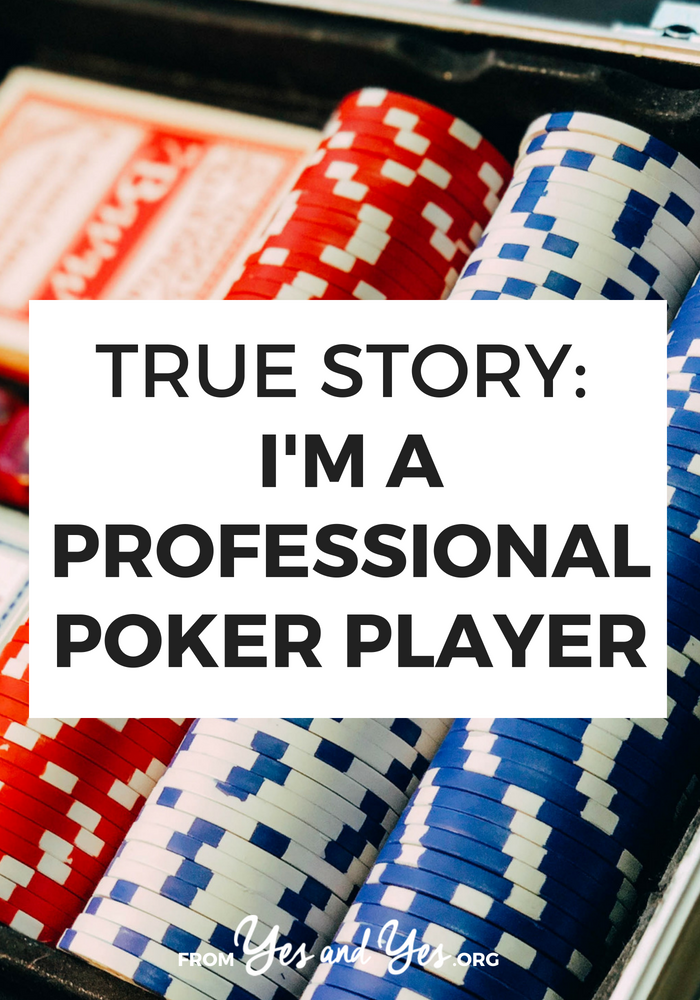
Tell us a bit about yourself!
My name is Andrew and I just turned 29. I’m from Springfield, IL, went to high school in Aurora, IL, went to college in Ithaca, NY, and then moved to Sacramento, CA for an engineering job five years ago.
I managed to hold that job for five months before I was let go. I was upset for all of one day before I realized that I really hated what I was doing. More than that, I hated that my compensation was largely based on factors I had no control over (company performance, economic climate, politics, negotiation, etc.)
Ultimately, that was the largest factor in choosing poker over another more traditional job. In addition, I’ve always liked the idea of being self-employed and having the freedom to do whatever I want. I use this freedom to hang out with my girlfriend Amy.
We have become a lot more active, so we run, swim, and kayak. I play basketball and tennis when I have time, too. Oh, and we are both avid readers. So is everyone else, but I thought I would paint the full picture.
For those of us who know NOTHING about cards, what are the basics of poker?
This is such a tough question to answer in limited space. There are so many different types of poker, but most people are familiar with the variant seen on TV — Texas Hold’Em. Everyone is dealt two cards face-down. There is a round of betting, followed by a “flop” of three cards. More betting. A “turn” card. More betting. Finally, the “river”.
Between your two cards and the five in the middle, you produce the best five card hand possible. Whoever is left after the round of betting on the river shows their cards and the best hand wins. I hope that is a decent explanation.
Entire lifetimes could be spent discussing the intricacies and nuances of the game, and it gets trickier everyday.
What are the skills required to be a good poker player?
If I were assembling attributes to make the perfect poker player, I would start with discipline and a perpetual desire to keep getting better. I can’t stress how difficult this game has become.
Fewer than ten years ago, knowing to only play a few hands made you a winning player. Nowadays, if you don’t understand bluffing frequencies, combinatorics, game theory and statistics, you have an uphill battle.
So yes, it should go without saying that having great tactics and strategy, as well as some serious math skills, is necessary to give yourself a chance.
In addition, knowing something about player tendencies, human psychology, and doing your homework on specific players will also help to separate you from the rest of the field.
How old were you when you started playing?
I started playing in college, like most guys. I had friends I would get together with once or twice per week and we would play for $10-$20. I don’t know if a single one of us knew what we were doing.
The poker boom had just hit in 2003-2004, and everyone wanted to play all the time. I eventually started playing online after a friend recommended it. I still had no idea what I was doing, but I found a way to win early.
I think that fueled my desire to improve, so I started reading and discussing the game with people that I respected. That was the turning point for me.
What did you do before you started playing poker professionally?
I was a transportation engineer. Before that, I was a sailing and tennis instructor.
Was there a specific point when you realized “Hey, I could do this as a job?”
It started out of necessity, but I think that a few months in I was having success that rivaled and then exceeded my salary as an engineer.
How have the people in your life responded to your career decision?
My parents and sister have always hated it. I think they see my education as a waste. They paid for an Ivy-league education, but I still think my time in college was invaluable. I think/hope they are coming around.
Having some publicized success certainly helped things. Unfortunately, no one thinks you’re good until you’re on TV, but that hasn’t happened for me…yet. Had some really close calls this past year.
As far as my friends go, I think they are split between skeptical (“What do you REALLY do for money?” and jealous (“Dude, that’s totally awesome. Teach me.”) I don’t know which reaction I like more. Maybe the second because I actually get paid to teach people sometimes, but I also have to explain all the negatives to people who romanticize it.
Logistically, how does professional poker playing work? Do you go to casinos a lot? Do you ever play with friends?
There is an entire tree of different poker variants, but I will try to capture the important branches. Online and live. Tournament and cash. I play all four, but online has been tougher since the DOJ cracked down on the payment processors that were handling deposits and withdrawals.
Let me make one thing clear: ONLINE POKER IS NOT ILLEGAL. Both online and live (in casinos) you can play tournaments and cash. In tournaments, everyone starts with the same number of chips and you continue playing until only one person is remaining. This is what you see when you watch the WSOP on TV.
Cash games are sometimes shown, but they involve playing for actual cash and you can leave at any point and take what is in front of you.
Are there any other games or types of gambling that you play?
Unlike most poker players, I’m not really a fan of gambling in the pit. It’s a real problem for many players. I guess they just need the action. I like to play all the standard card games (Euchre, Spades, Gin, Rummy, etc.) in addition to some that are just played by poker players (Chinese poker, for example).
I would say one unique thing that poker players do a lot of is prop bet, and I find myself doing a lot of that. That could be considered gambling. Some examples of prop bets that I’ve had (or heard) in the last few weeks involved weight loss, how far I could jump, whether or not someone knew a random fact, the total number of players in a tournament.
They tend to be very random, but they are fun and a great way to break up the monotony at the table.
What are the coolest aspects of being a professional poker player? Are there any drawbacks?
Setting my own hours and having the freedom to vary my schedule. Aside from that, I can’t think of any others, but I’m pretty sure a lot of people would give up a lot for just that. With regard to drawbacks, there are tons.
First and foremost, the swings can be emotionally and financially devastating, pretty similar to day-trading. Imagine going to your job for 2 weeks, but instead of getting a paycheck, you owe the company $X. Now, do that several times a year for several months at a time and you get an idea of what it can be like.
On the other hand, some days you get paychecks for what you made last year. We call this variance and it can be a b*tch. Second, it’s definitely not the most healthy activity in the world. You’re often playing crazy hours, seated the entire time, eating terrible food.
I’ve struggled to get back to the weight I was in college because of poker, but finally decided the best way to accomplish that was to bet on it. I’m seeing results now, so hopefully in a few months I can have one less drawback.
Do you anticipate doing this forever?
In some capacity, yes. When you put in the amount of time I have (or any professional has), that is an investment that pays future dividends, kinda like a savings account. I would imagine that my skill set is probably worth a couple million dollars over my lifetime, so it would be silly to drop the game altogether, but I don’t anticipate playing full-time forever.
In fact, I’m going back to school for my masters in economics, which will eventually become a PhD (hopefully), so I will be spending a lot of time with that.
Thanks so much for sharing, Andrew! Do you guys have any questions? Are any of you avid poker players?












It's funny how many economists I know have poker as a hobby. They don't seem that related to me – aside from, like 'they both involve numbers' – at least not enough to explain the high degree of crossover. They must have more in common than I thought – behaviour modelling, complex forecasting…
Thank you so much for sharing your story!
Loved your story, my one question is, how do you pay taxes? Do you set $$ aside for that each month, or do you have to pay an ungodly amount every year after you file your taxes? Thanks for sharing!
Seriously, what a cool profession!
You went to high school in Aurora IL? I'm pretty sure I know exactly which high school you went to – that's a very modest way of saying you went there.
Now I'm curious, having gone to high school in Aurora myself. Which school is the one to be modest about?
IMSA is likely it
must be IMSA if he lived in Springfield and went to school in Aurora
This post has really impressed me as you mentioned key rules which are common as well as different for all the different variants of online poker. This post is sure going to be of great use for everyone and here I would also like to announce and encourage people to check out my own online poker website where the players can not only play different variants of poker but they can also learn them in the casino tutorial which are free to use.
This post has really impressed me as you mentioned key rules which are common as well as different for all the different variants of online poker. This post is sure going to be of great use for everyone and here I would also like to announce and encourage people to check out my own online poker website where the players can not only play different variants of poker but they can also learn them in the casino tutorial which are free to use.